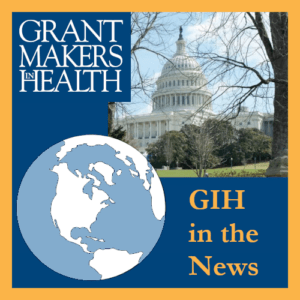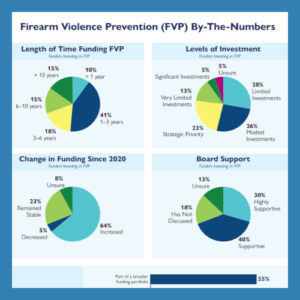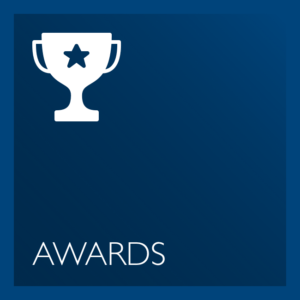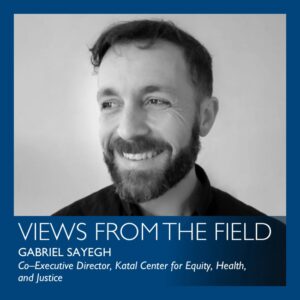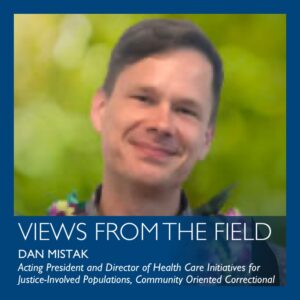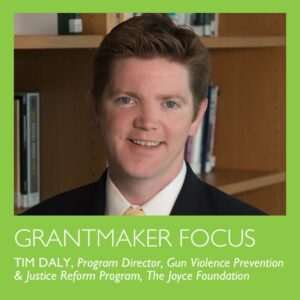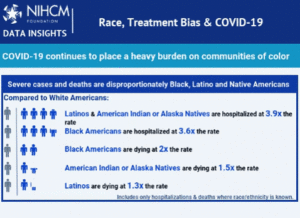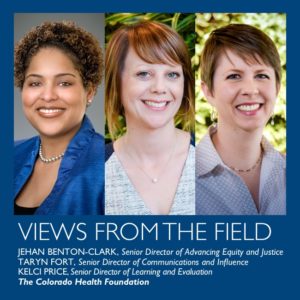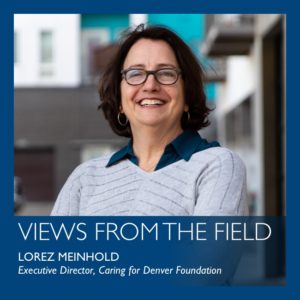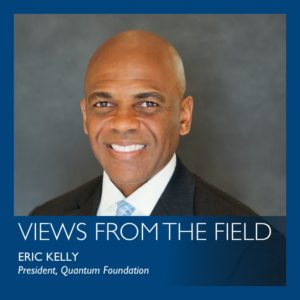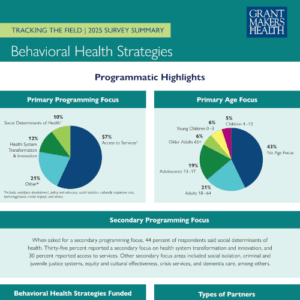Upcoming Events
Past Events
Explore Health Equity and Social Justice Topics
Recent Items - Climate and Environmental Health
Recent Items - Health Equity
Recent Items - Healthy Eating/Active Living
Kate B. Reynolds Charitable Trust: October 2025
Recent Items - Housing
Marin Community Foundation: October 2024
Horizon Foundation: September 2024
Recent Items - Justice Reform
Recent Items - Social Determinants of Health
North Carolina Healthcare Foundation: January 2026
Marin Community Foundation: October 2024
Recent Items - Violence Prevention
The Joyce Foundation
Latest Resources
Race, Treatment Bias, and COVID-19
This new infographic from NIHCM Foundation explores the history of racial bias and discrimination in health care and during the pandemic, outlines short-term strategies to narrow disparities from COVID-19 and respond to vaccine hesitancy, and highlights long-term strategies to address systemic racism and improve health outcomes.
Weaving DEI Into a Foundation’s Everyday Work
At The Colorado Health Foundation, we are relentlessly committed to advancing health equity and believe it exists when there are no avoidable, unfair or systemically-caused differences in health status. To live into this, we have implemented principles of diversity, equity and inclusion into our vision and cornerstones, and our daily operations. While we are not experts, we can offer a glimpse of what some of this experimentation looks like in practice in our grantmaking, evaluation, and communications functions.
New York State Health Foundation: November 2020
a new report analyzes issues related to food scarcity in New York State during the initial months of the coronavirus pandemic, finding that 1 in 10 households experienced food scarcity.
From Citizen-Led Ballot Initiative to Community-Centered Solutions for Mental Health and Substance Misuse
Our mission is to address Denver’s mental health and substance misuse needs by growing community-informed solutions, dismantling stigma, and turning the community’s desire to help into action. In less than one year of operation, we have funded 41 organizations and five City agencies and provided $17.3 million in funding to the Denver community.
Health Equity: Our Way Forward …Through COVID-19 and Beyond
Eric Kelly, President, Quantum Foundation For health funders, it is essential that we realize that even given all of the unforeseen devastation of COVID-19, and the compounding social crises in its wake, many of our communities began 2020 already in a health crisis. These pre-existing conditions allowed a global pandemic that does not discriminate to…
Pioneering Health-Wealth Solutions for Children
Today, as we navigate the pandemic, deep racial and economic inequities in health and wealth outcomes have been revealed and amplified for children—especially children of color. Health and wealth are inextricably linked. Investments to improve health outcomes using the social determinants of health and to promote financial well-being across families are mutually supportive. The ultimate goal is to ensure that all children are healthy, financially secure, and live in families without daily financial stressors because of assets and wealth.
Reports and Publications
GIH Bulletin: January/February 2026
One year ago, as we were just one month into the new administration, I wrote that “At a moment when so much has been described as ‘unprecedented,’ and so much of what we value is being attacked, we need to ask ourselves as individuals, organizations, and a field, what do we stand for? What values do we hold, and what will we do and say to defend them?” Today, the answers to these questions are needed more urgently than ever.
GIH Bulletin: November/December 2025
GIH President and CEO, Cara V. James, delivered these remarks on Protecting the Freedom to Give at the closing of the 2025 Health Policy Exchange, in Arlington, Virginia.
Behavioral Health Strategies
GIH conducted a survey in late 2024 on funder engagement in behavioral health. This fact sheet, based on a sample of 139 health funders, summarizes the current trends, gaps, successes and challenges for funders. It also highlights philanthropy’s continued commitment to behavioral health while also signaling concern about the upcoming funding environment.
Strengthen your knowledge, skills, and capacity.
GIH focuses our programming around five areas that are critical to achieving better health for all.
We invite you to explore the resources available on our focus areas pages, browse content in more specific issue areas, and to connect with GIH staff to discuss how we can partner and support your work.




